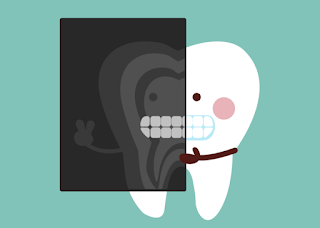Professional Teeth Cleaning (ORAL PROPHYLAXIS)
So
you went to your dentist and you were told to get scaling(oral prophylaxis)
done and all of sudden all those myths and misconceptions you
have heard about teeth cleaning started rushing into your mind…but not to worry,
by the end of this article all your doubts about oral prophylaxis will be
explained.
So
to know about scaling first we should understand what is scaling,why is it
important, and who needs it.
What
is oral prophylaxis??
It
is a common dental procedure for patients with gum disease. It is a type of
dental cleaning that reaches below the gum line to remove the plaque build-up.
Why
is it important??
Everyone
experiences some form of plaque buildup. There is a thin layer that covers your
teeth almost all times formed by the presence of saliva, bacteria and proteins
in your mouth. The bacteria that lives in the plaque causes gum diseases and
tooth decay if not taken care of. Gum disease is a disease that will not get
better on its own, it will continue to worsen until it is treated. Oral
prophylaxis is the best way to defend against the complications that can be
caused further.
Who
needs it??
If
you notice inflammation of your gum tissues, redness, puffiness and bleeding
when brushing and flossing, these are the signs of gingivitis (the earliest form
of gum disease). The bacteriathat has been built up beneath your gum line is
what causes the inflammation and possible infection. If treated by scaling at
this earliest stage it may reverse the gum disease.
How
often do you need it??
Oral
prophylaxis should be done twice a year (once every six months).
Myths
about oral prophylaxis…
Scaling
is a process that has been misunderstood by many and also there are a lot of
myths about it, out of which few of the most widely believed myths are
·
Scaling causes weakening and mobility of teeth.
·
Gaps between the teeth are increased than before.
·
Teeth become sensitive.
·
Procedure damages the enamel.
Myths explained and reasoned…
1)
At the very late stage when the teeth are cemented together
with hard calculus and most of the bone is lost, scaling and removal of
deposits at this stage would obviously make the tooth move. Hence its not
scaling that loosens the tooth, they have already become loose due to calculus.
Removal of calculus has set the tooth in mobility. This happens at very late stage.
2)
In some cases there is tooth colored tartar present between
the gaps of the teeth hence on removal of this tartar the patient feels the gap
has occurred due to cleaning which is wrong.
3)
And as tartar is removed the covered and concealed part of
the teeth has been exposed to the oral environment thereby causing mild to
moderate sensitivity which vanishes in a day or two, and most of the patients
do not even experience sensitivity.
4)
By the correct use of instrument the plaque and tartar is
removed only from the surface of the tooth thereby does not damage any enamel.
“Hence
assured that scaling and root planning does not weaken your teeth, it will
rather make them strong”
Dr. Krinita Motwani
Khar west, Mumbai.
Mbl :
9820280343




Comments
Post a Comment